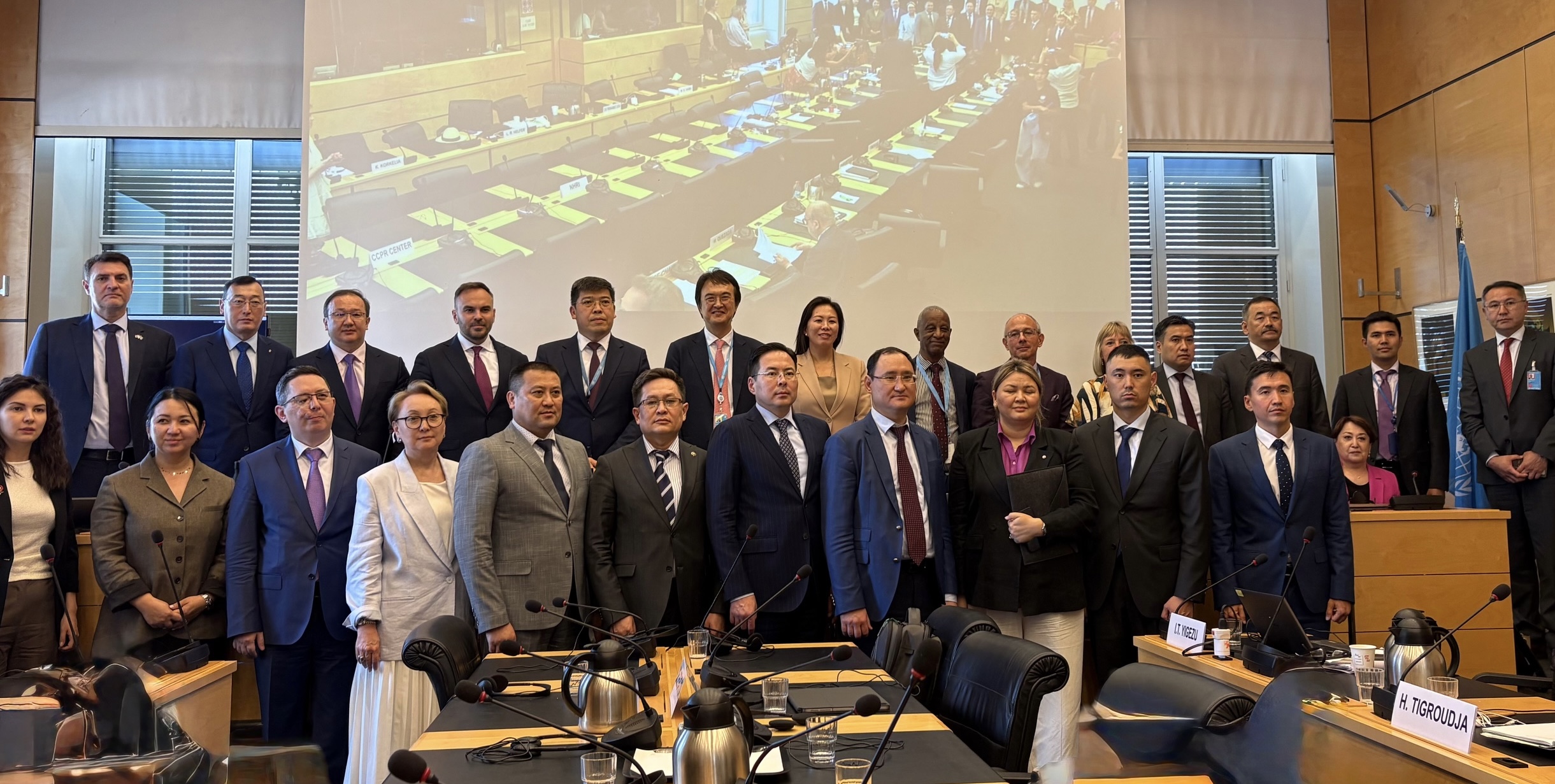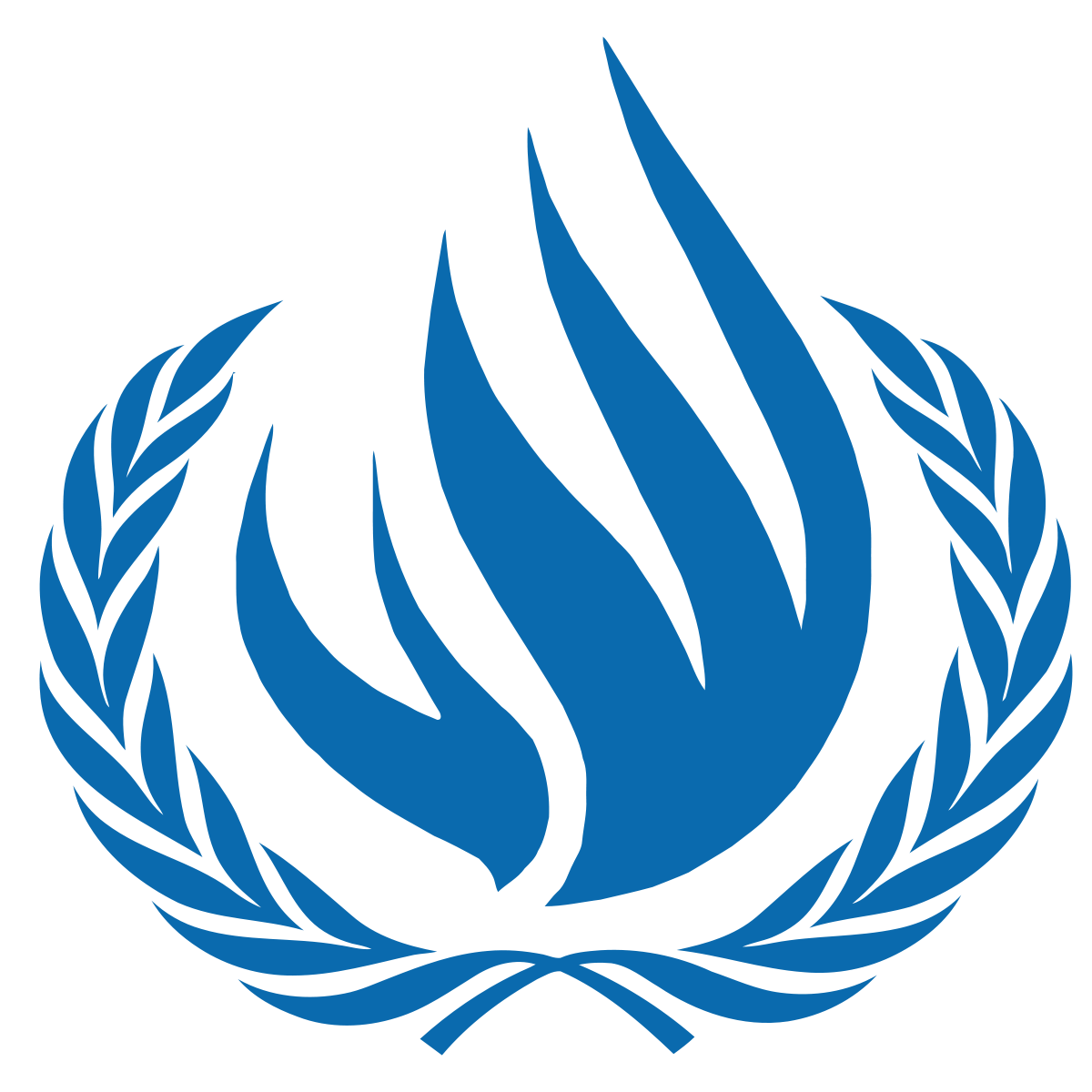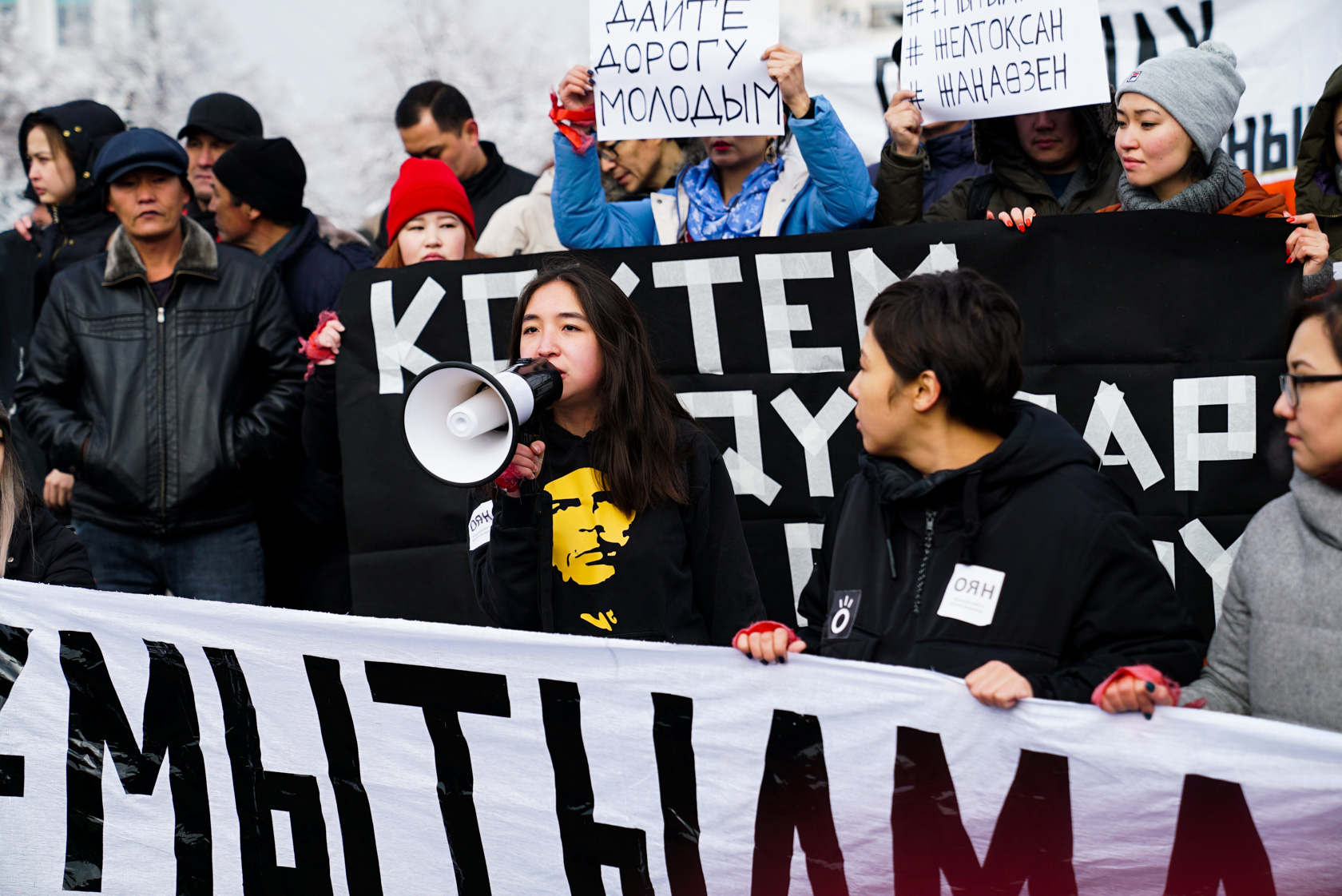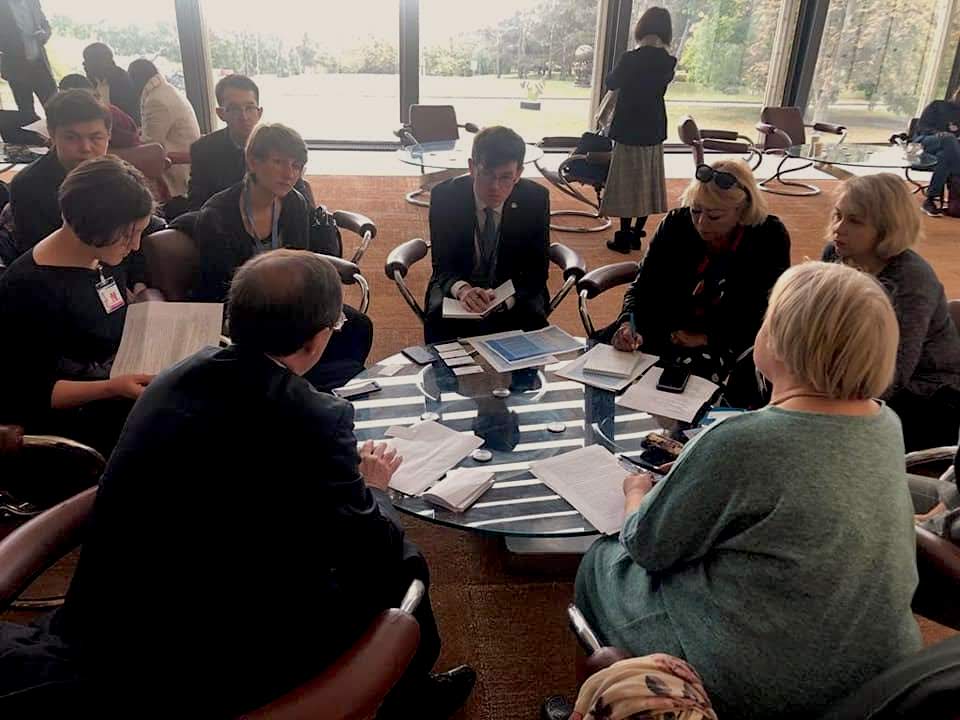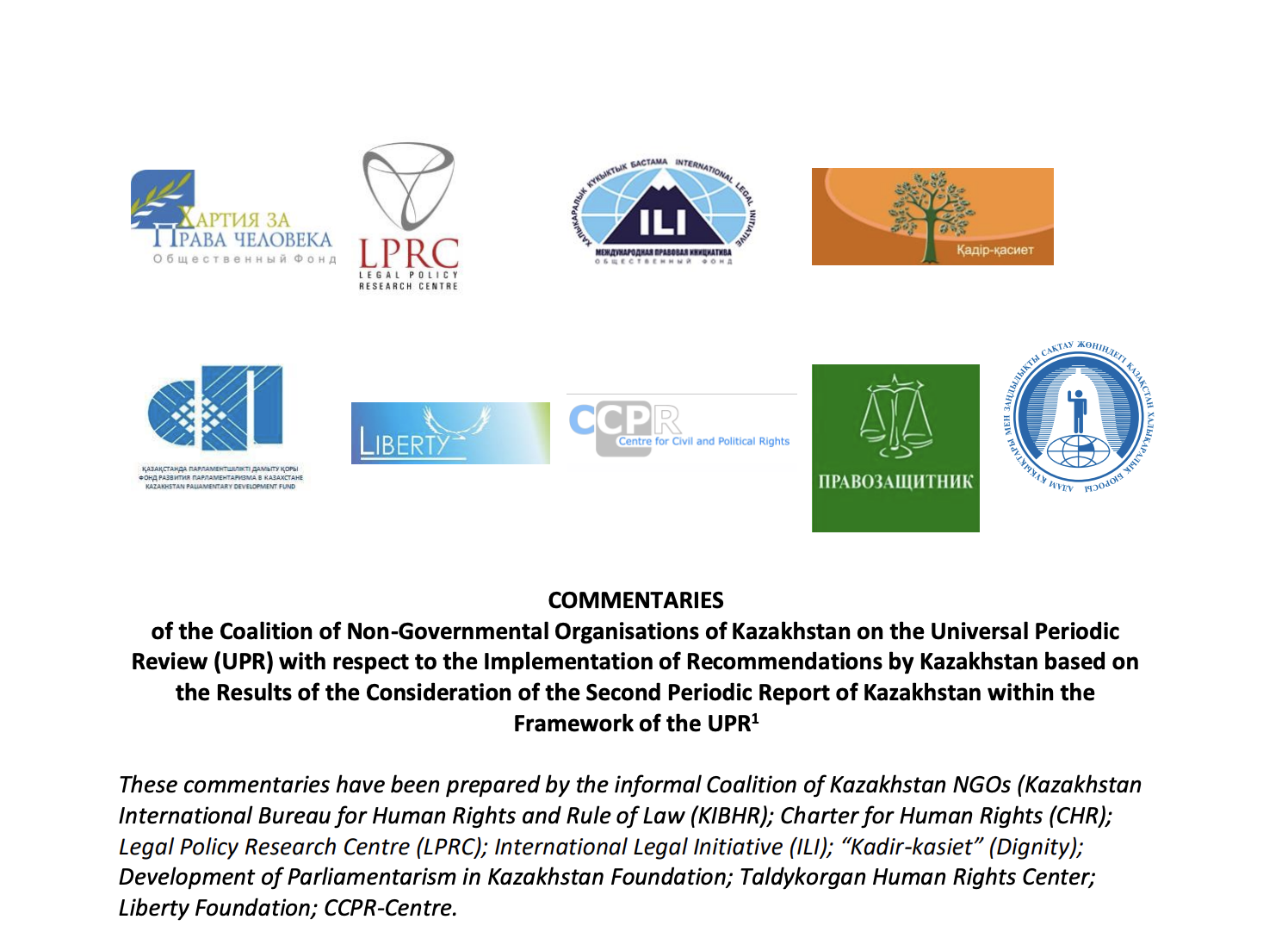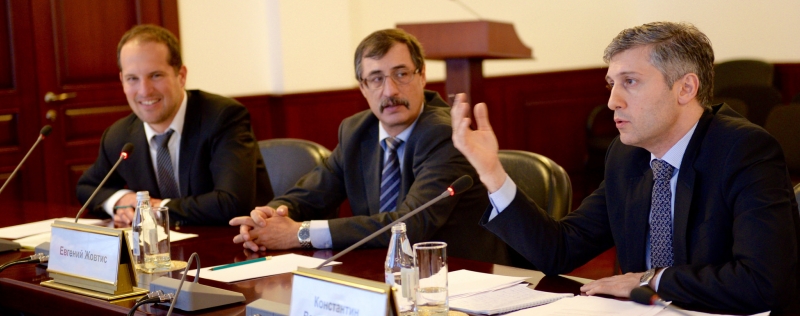A second Follow Up Mission in Kazakhstan organized with a Member of the HR Committee
Published on 06 Jan 2020, 10:04 AM
Evaluation of the Implementation of the recommandations made by the UN Treaty Bodies
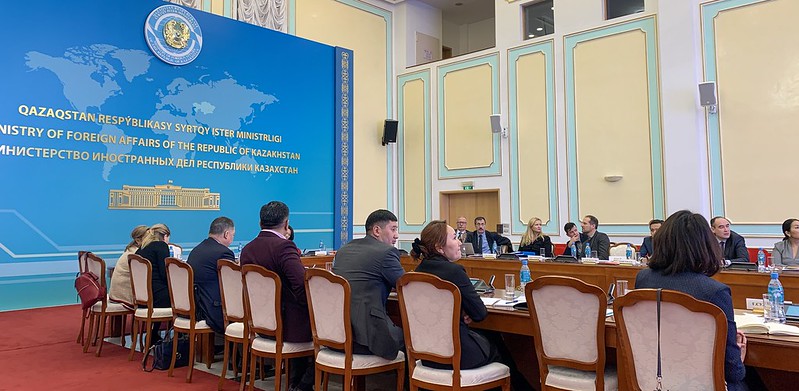 On 27th Nov. 2019, the Consultative and Advisory Body (CAB) “Dialogue Platform on Human Dimension", established by the Ministry of Foreign Affairs of the Republic of Kazakhstan met with the members of the CCPR-Centre delegation.
On 27th Nov. 2019, the Consultative and Advisory Body (CAB) “Dialogue Platform on Human Dimension", established by the Ministry of Foreign Affairs of the Republic of Kazakhstan met with the members of the CCPR-Centre delegation.
The Centre for Civil and Political Rights (CCPR-Centre) in partnership with the Kazakhstan International Bureau for Human Rights of Law, conducted a mission in Kazakhstan during 27 to 29 November 2019. The delegation met with various stakeholders with a view to ensuring that the Concluding Observations adopted by the HR Committee were understood by domestic authorities, and to engage in a dialogue on the implementation of Views adopted by the UN treaty bodies on Individual Communications.
The delegation of the mission was composed of Vasilka Sancin, Member of the HR Committee and Patrick Mutzenberg, Director of the CCPR-Centre. Efforts were also made to involve members of New Generation of Human Rights Defenders in all events, and a special meeting for the representatives of New Generation based in Nur-Sultan with Vasilka Sancin and Patrick Mutzenberg was held on the first day of the mission.
""The CAB "Dialogue Platform on Human Dimension" is a positive and effective example of open dialogue between civil society and authorities, and can serve as a model to be replicated in other countries"
"
- Vasilka Sancin, Member of the HR Committee
Important meetings with the authorities of the Republic of Kazakhstan
The delegation met with the Ministry of Foreign Affairs, Ministry of Internal Affairs, Office of the General Prosecutor' Ministry of Justice, Office of the Human Rights Ombudsman, Majilis of the Parliament, the Supreme Court, in addition to holding an expert meeting on 28 November.
During these meetings, the delegation discussed:
- Freedom of peaceful assembly.
- The right to a fair trial.
- Challenges of work of national human rights institutions.
- Implementation of Views adopted by the UN treaty bodies.
- Establishment of mechanisms and assignment of the authorities responsible for implementation of Views.
- The role of civil society in monitoring implementation.
Kazakhstan authorities showed a genuine interest in the Committee's Recommendations adopted in 2016 on the occasion of the previous ICCPR review by the Committee. It also demonstrated a willingness to engage in a manner respecting the application and implementation of the ICCPR.
The recent establishment of a National Council of Public Trust and the regular meetings of the CAB represent a key positive step
Kazakhstan President Kassym-Jomart Tokayev established the National Council of Public Trust in July 2019 as a platform to enable the government to be more responsive to the public. The Council is designed to act as an advisory body to Tokayev in order to better facilitate public input in the formation of national policies, and includes commissioners for human rights and children’s rights in Kazakhstan.
Effective cooperation between authorities and CSOs via the Consultative and Advisory Body "Dialogue Platform on Human Dimension" represents another positive step.
The Consultative and Advisory Body (CAB) “Dialogue Platform on Human Dimension” was established by the Ministry of Foreign Affairs of the Republic of Kazakhstan, and serves as a mechanism for dialogue between the government and human rights organizations on the human dimension. On 27 November 2019, the delegation, authorities, and representatives of civil society and international organizations met to discuss issues such as:
- The improvement of co-operation between the law enforcement authorities and civil society.
- The observance of the labour rights, including within foreign companies on the territory of the Republic of Kazakhstan and labour migration.
- Progress in implementation of 50 recommendations of the international bodies and CAB DHD
- The recent UPR process.
Vasilka Sancin highlighted that the newly established CAB "Dialogue Platform on Human Dimension" was a positive and effective example of open dialogue between civil society and authorities, and can serve as a model to be replicated in other countries.
An Expert Meeting was also held to assess implementation of Views adopted by UN treaty bodies
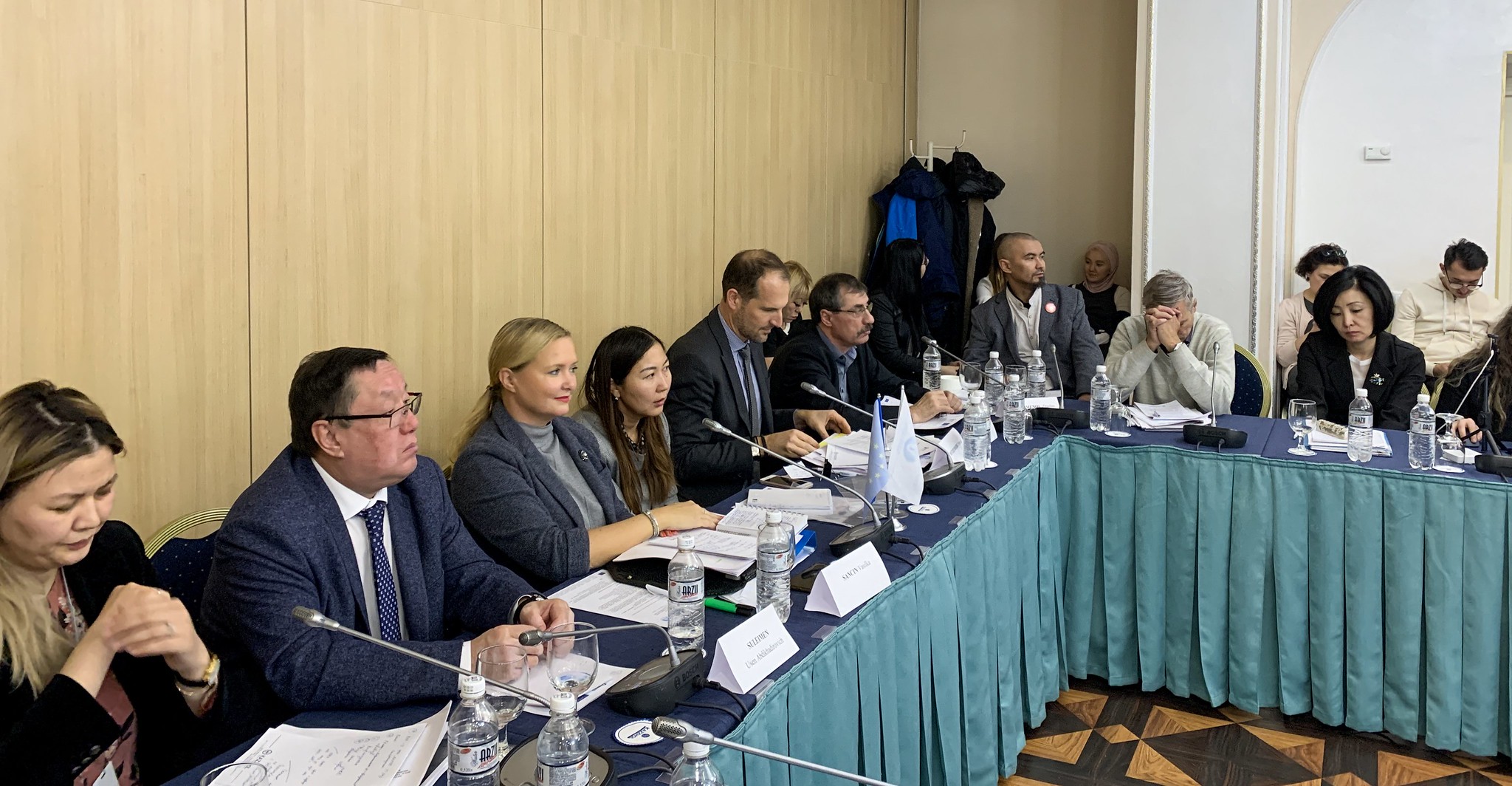 The Expert Meeting gathered 31 NGO representative, including victims, relatives and representatives of victims, lawyers and barristers and 11 representatives of the national authorities
The Expert Meeting gathered 31 NGO representative, including victims, relatives and representatives of victims, lawyers and barristers and 11 representatives of the national authorities
The Expert Meeting gathered 31 NGO representative, including victims, relatives and representatives of victims, lawyers and barristers and 11 representatives of the authorities and representatives of international organisations in order to:
- Comment briefly on the implementation of Views adopted by the UN treaty bodies in Kazakhstan;
- Give voice the main concerns of NGOs, victims and representatives of victims related to the implementation of the Views in Kazakhstan;
- Discuss best practices for the implementation of Views across different countries; and
- Develop an NGO action plan for monitoring and lobbying for the implementation of the Views.
The meeting represented a crucial opportunity to establish a dialogue between the victims and Kazakhstan authorities in order to drive effectiveness and consistency in the implementation of Committee Views.
Despite progress, issues of grave concern remain
Issues such as an authorization-based and non-notification approach to peaceful assembly, and a failure to compensate victims, still remain.
Regarding freedom of peaceful assembly, the delegation noted that a draft bill of a new law on peaceful assemblies is in progress. Representatives of civil society, including experienced human rights defender Yevgeniy Zhovtis, director of the Kazakhstan International Bureau for Human Rights and Rule of Law, participated in drafting of the law. It was also noted that while authorities understand the necessity of fulfilling their obligations under international treaties, the State is yet to develop a concrete mechanism for compensating victims identified by the HR Committee. The Public Fund of Compensation has been established however it is currently operating as a fund for urgent payments, and not yet operating as an effective measure to compensate all victims recognized by Treaty body decisions.
Concluding thoughts
The delegation observed that the State is working towards meeting its obligations pertaining to implementation of the Recommendations of the Committee and Views of UN Bodies, on the basis that:
- The State is developing a special mechanism with assignation authorities to administer compensation for victims.
- Authorities intend to publish all Views in all official languages on the official web sites of the Supreme Court and Human Rights Ombudsman;
- A new law on peaceful assembly with a notification-based approach is in development;
- Authorities intend to publish court decisions related to extremism and terrorism in a full volume in accordance with the requirement of the article 14 of the ICCPR.
Background to mission
The HR Committee reviewed the second report of Kazakhstan (CCPR/C/KAZ/2) on the 22nd and 23rd of July 2016 at its 117th session and adopted its Concluding Observations (CCPR/C/KAZ/CO/2). According to follow-up procedures, the HR Committee selected three key recommendations and requested that the State Party provide an updated report within 12 months (eg. July 2017). The follow-up to the recommendations contained in paragraphs 18, 24 and 54 of the concluding observations on the report submitted by Kazakhstan, adopted at the 117th session in July 2016, was presented in a form of the follow-up letter dated 1 August 2018. Concluding Observations adopted by the HR Committee indicate that the next (third) periodic report of Kazakhstan is due by July 2024.
The HR Committee received the State party reply on 18 April 2017, which was assessed during the 123rd HRC session in July 2018. The assessment of the Committee and the additional information requested from the State party are reflected in the Report on follow-up to the Concluding Observations.
In particular, the Committee considered that the recommendations selected for the follow-up procedure have not been fully implemented and decided to request additional information in the context of its next periodic report. The Republic of Kazakhstan was also reviewed as part of the Universal Periodic Review in early November 2019.
This mission was one of the key follow up activities carried out by the CCPR-Centre in Kazakhstan, conducted as part of the "Implementation of ICCPR in the CIS: Towards an effective engagement of the CSOs at the national and international level" project.
It is a continuation of the CCPR-Centre’s previous mission in April 2018, with the next visit planned for June 2020.
 On 27th Nov. 2019, the Consultative and Advisory Body (CAB) “Dialogue Platform on Human Dimension", established by the Ministry of Foreign Affairs of the Republic of Kazakhstan met with the members of the CCPR-Centre delegation.
On 27th Nov. 2019, the Consultative and Advisory Body (CAB) “Dialogue Platform on Human Dimension", established by the Ministry of Foreign Affairs of the Republic of Kazakhstan met with the members of the CCPR-Centre delegation.


